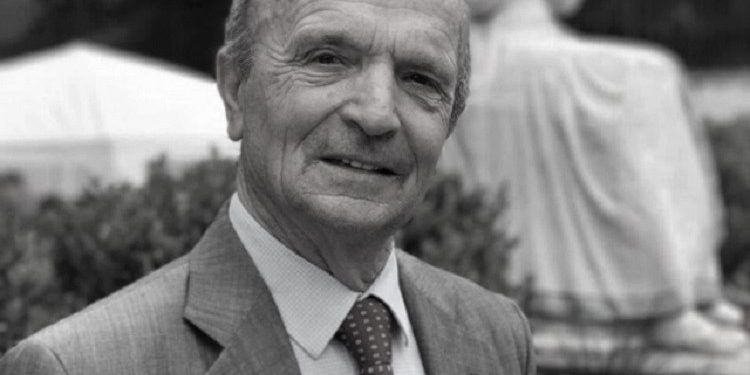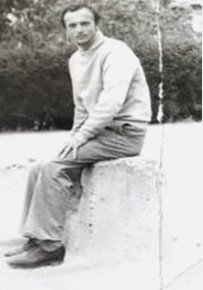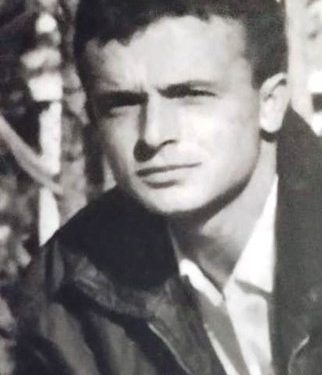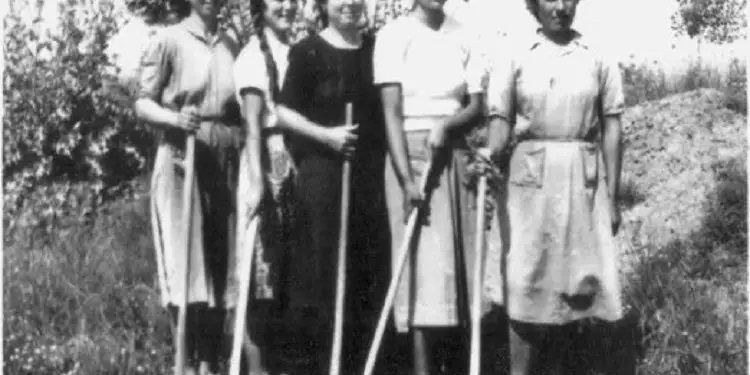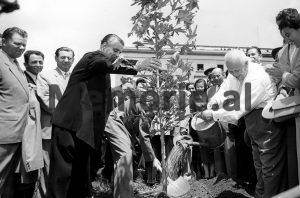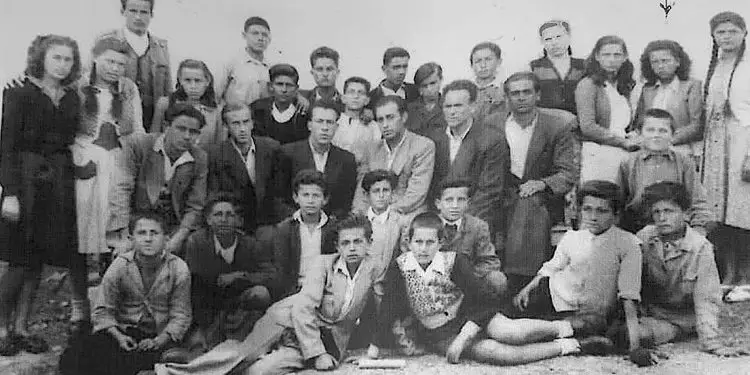By SIMON MIRAKAJ
The third part
– Camps under the shadow of Tomorri, 44 years of internment’ –
Memoir
Memorie.al / I put these memories down on paper after a long period of hesitation. This is probably because the subjects were always fresh in my mind, which followed me mercilessly during the years after the fall of communism. But there comes a moment – when time takes its course – and the images of horror and suffering came fading to me – almost the suffering passed into oblivion. Then I decided to repeat the most impressive events – first in my mind – until they took the form of these narratives. As dim as these accounts may seem – they create the idea of the harsh reality and misery of the camps.
Arrests in Savër – 1960
In May 1959, the first secretary of the Communist Party of the Soviet Union, Nikita Khrushchev, visited Albania. A week before he came to Albania, the State Security in Lushnje took measures “to protect against class enemies”. They gave the task to the First Secretary to remove some individuals from the city, such as; Seit Selfon, Vanko Lezon, Shahin Rushit and, some other that I don’t remember. They isolated them in the internment camp in Gjaza, together with some internees from the internment camp in Savra, arranging them in corn cobs.
This “group of enemies” stayed there for two weeks. Before the year had passed, rumors began to circulate that relations with the Soviet Union were breaking down. The breakdown of relations meant the intensification of the “class war” and the elimination of “enemies”. This meant deportations, arrests and imprisonment.
In 1960, the breakdown of relations was formalized, which was accompanied by a wave of arrests, starting with the member of the Political Bureau of the APS Central Committee, Liri Belishova, etc. Of course, this wave would catch the “enemies of the class”.
After I had returned home from the playground and was washing my feet in the yard of the house (shack), I saw the camp captain, Hekurani, with all the Security operatives, Llazar Goga, coming towards us.
When we saw their direction we were stunned. It wasn’t long before Vasil Kokali (my brother-in-law), who had been married for a year, was arrested, leaving his wife and little daughter, Adriana. Vasili was from the village of Aliko in Saranda, he came from a rich and anti-communist family. He was interned as a family since 1945, in the Kruja camp.
The Ministry of Internal Affairs had decided that families from the South would be sent to internment camps in the North, while those from the North would be sent to the South. We joined Vasili in the internment camp in Tepelena. Vasili caught the eye of the boys in the camp, he was a neat and serious boy and very particular about how he dressed, combed his hair, etc. Her hair was thick and wavy. His friends said that Vasili combed his hair a hundred times, while his teeth whitened from afar.
Of course, this attitude of his and the situation created, caused him to be arrested, after a year of marriage. The purpose of arrests in such political situations was to instill terror in the people. Arrests were made at work, on the street, at home, and then with his hands tied behind his back, they led him on foot, to instill terror in people, to tell you: “Be wise, because you will end up with your hands behind your back, tied with iron”.
They were absolutely innocent, like hundreds of thousands of others, who had filled the camps and prisons, but this was the food of the dictator Enver Hoxha and that system, running the country through violence and terror. On the appointed day, I went with my sister to send change and food to Vasili, who was at the investigator. He was in the dungeon, in the Internal Affairs Branch of Lushnja.
When the warden, Miti, came to take my clothes and food, Vasili would reach out and grab the bars of the dungeon, so that we could see him. He greeted us with a hat, because his head had been shaved. We could hardly see that there was a board in front of the bars of the dungeon window. There was very little space to see it. There were also cases when the guard came and did not take our food. “I don’t take them, because they don’t behave well in the interrogator”, he told us!
We left quite upset, it was really a sad sight. Vasili with a shaved head and pale, from the lack of sun. To give us courage, and especially to sister Lajde, she smiled. After a nine-month investigation, he appeared in court, where we family members were also present, in a session that ended with his conviction, for “agitation and propaganda”, with 7 years in prison.
One of the accusations was: “You insulted Khrushchev”. When official relations with the Soviet Union were broken, they began to insult him themselves. We hoped that he would be released or his sentence would be reduced, but he served the entire sentence, for seven years. His arrest had consequences for the family, the brothers who lived in Aliko, Saranda. They brought Miço and Llambi into exile as a family.
The consequences would also fall on us, his brothers-in-law, Sokol and Simon. After we washed and went inside wiping, when we hear a knock on the door, we open the door quite shocked to see the captain and the operator. The captain saw our situation and immediately intervened: “You Sokol and you Simon, from today on, you will go to the appeal; the appeal takes place in the morning and at dinner. You, Simon, will only go out to dinner.”
I hadn’t turned 15, nor had Sokol turned 17. We were both in shorts. Only the mother worked and suffered from heart disease, which took her life prematurely. At dinner there from eight o’clock, the appeal was made. First the captain read the women’s names, and then he began the men’s names. When I looked at myself among those men and women, I looked like a big man and I felt appreciated. It didn’t take me long to understand the importance of this assessment, which meant one step away from prison.
When I heard my mother’s voice in the morning: “Take them; it’s time for me to appeal”! At that time, the appeal was not fun, between men and women, but fear that it would arouse terror. There were not a few occasions when I returned from the appeal with tears in my eyes, seeing the men who were arrested and, with their hands tied behind their backs, headed without any guilt to prison, leaving mothers without their sons, women without their husbands, and children without fathers. Accusations; “agitation and propaganda” in most cases, fabricated charges that claimed the lives of innocent people. From this uncertainty and this horror, we escaped in July 1989, when we were released.
During this period, I am bringing to mind those men who were on appeal and were arrested in Savër. Ahmet Kolgjini 16 years old, Haxhi Agalliu, Rexhep Hoxha, Ylli Tabaku, Sinan Hajdari, Vasil Kokali, Llambi Plasoti, Dheodhor Fili, Loli Mavro, Stefan Pollo, Zydi Kasa, Emeror Koleci (also for the second time), Shanisha Dosti, Seit Taho, Musa Sina (for the second time), Nikoll Mërnaçi, Elez Hoxha, Spiro and Kostandin Gjoka, Avdulla Nela, Fran Tina, and a 17-year-old, Agim Poda.
These are the names of those arrested, only in the Savër internment camp. I remember him with great respect. Some of them have left this life without enjoying the freedom they dreamed of. Rest in peace.
Dissent through humor
My godfather, Musa Sina – Savër 1963. During my journey to Dante’s hell, imposed by the communist dictatorship, unheard of in the history of our nation, I met many characters, noble people, educated in the West. Simple people, but very dignified, for whom you feel proud for the time you spent with them. I have taken something from their wisdom, from their nobility, and they felt young, next to us. At certain moments, they parade in my memory, majestic.
Many of them are no longer alive; they have taken the long path to the next, the path to Heaven. In my memory, I wanted to bring a little of my beloved gambler, Musa Sina. Musa came from a family of nationalists from Dibra. Due to the anti-communist stance of this family and the escape of his two brothers, he is exiled with his mother, Kafila, a lady who expressed only kindness, and with his two sisters-in-law, Hana with three children, and Dije with a daughter. , Nadir. The camp of Tepelena should rather be defined as; “Death camp”. Over 300 children died there from hunger and various diseases, as well as old people and adults.
They moved the graves three times. Their remains have not been found and will never be found. From this terrible situation, Musa thought to escape, he often swam in Vjosa, he swam beautifully and he himself was charming, charming, with a little moustache, which suited him very well. The Pursuit forces capture him and, the end was known.
The Military Court sentences him to 20 years, ends him in Burrel prison. He spends almost his entire prison term there. He was released in the early 60s, already ill. His arrival was a great joy for his mother, sisters-in-law, and friends. After a rest of several days, work begins, you had to live, but the work was heavy. The respect that his friends had, they kept him close, making his work easier. In particular, the Kaloshi brothers helped by assigning him an easy job, to bring him water to drink. Musa, as I told you, was a charming man but he also had a sense of humor.
One day he decided to go to a village in Berat, to meet a friend of his in prison. He wears the suit that his brother sent him from abroad and the cap of the republic on his head, and his stomach is swollen, from the illnesses he suffered in prison. He goes out into the street, puts his hand out to a car and starts. He stops the car, makes the payment and takes the road to his friend. When he was approaching the village, he saw a group of villagers talking to each other.
Musa was happy when he saw them, because he did not know his friend’s house. He decided to go towards them, to ask them. The villagers were happy when they saw a man in a hat with a collar, walking towards them, they immediately took a stand and said to each other; “We have a friend coming from Tirana”.
Musa listens to them and approaches them, greets them and, happily, they answer him. After they exchanged greetings, Musa asked them:
– “Please, can you tell me where Agua’s house is?”
They noticed and told him that; he is an enemy, how do you search for an enemy?!
– “Please, do you know where his house is?” That I’m worse than him”!
With these, Musa expressed his dissent against the regime. Time passes and Musa creates a family. God gave him three wonderful children, Kafilen, inherited his mother’s name, Markele and Bashkimi. He took his wife from Mallakastra, the daughter of a prisoner, Myrveten, a real lady. Musa, although very family-oriented, did not forget his cutting humor, which became the reason for the second prison.
On the farm, feces were cleaned with a cart, that is, two barrels were welded, and this work was done by an old man, not an exile, a local. This job paid well, 250 ALL a day. One day, Uncle Demiri dies. Musa decides to look for this type of work. Rather to express his displeasure against the regime. In the evening after the appeal, which we did twice a day, he goes to the office of the People’s Council.
“Good evening”! – The secretary of the party was in the office the entire chiefs of the Savra sector.
“Hey, why did you come”? – They all address him arrogantly.
“I found out that Uncle Demiri has died, I wanted him since I’m reportedly sick; give me the carriage of shit”.
“No,” the party secretary tells him, “Muse, you can’t take the chariot, because you don’t have front wheels.”
“Ew,” Musa tells them, “even with a hangar of shit, they want the front trikes”?! – leaves him. For these and others, he is arrested for the second time. Musa was on his way to work, near the Sejmene Bridge. “Jeep”-like stops. Two Security officers come down, throw the bag on his head and say: “In the name of the people, you are under arrest”!
At dinner, the family waits for him to return, but he doesn’t. Great concern, for the family, but also for us. After a week, they tell Myrvete:
“We arrested Musa as an enemy.” He was sentenced to 10 years in prison, which he served with dignity. Fate wanted him to experience the fall of communism. My Kumara left this world, charming as she was, leaving behind a beautiful memory for all who knew her. Rest in peace my Kumara.
The first day of work – 1965
When I remember that day, I am filled with sadness even today, sadness and regret, for the youth lost and left in the fields and canals of Myzeqe, with a hoe and a shovel at his side, not a little, but a quarter of a century. How many young men and women left their youth in prison camps, in mines and galleries, and why? Because they thought differently, they thought of living free, in their own country. How many young women, called kulaks, left their youth in the cooperatives, where their work was valued with points, they were not paid with ALL for the work they did, but with points, they withered prematurely, from hard work and injustice.
I just finished my final exam, I was walking down the corridor looking for an empty classroom, I didn’t want to talk to anyone, I wanted to be alone, I opened the door of a classroom, there was no one, I closed the door, I was sitting bored, of course I I knew what was waiting for me, a man who appealed twice a day, could not have any illusions about continuing his studies, but surprisingly man hopes, hope dies last they say. Two chalks were standing on the table; I took one and shot the blackboard, the door opened and the professor: “Well, what is Mirakaj doing? Why do you shoot with chalk”?!
“I’m sorry, professor, because it’s the last time I touch chalk…” – closed the door and left, rested a bit, headed home to Savër. I took a few days off and started doing the job tests, after I finished them I went and registered in a work brigade. I remember that my friends, those who had started work before me, recommended to me that, if they say: “Which brigade do you want… say in the third, that brigade has a brigadier, a very good man, he is an honest man, a communist from Skrapari, and his name is Ganiu cried”.
During the period of 25 years in agriculture, I remember two brigadiers who were humane and very kind to the workers, Qani Ganiu and Petref Kurti, two honest people, those who knew them I believe agree with my opinion. The day before starting work, I prepared the tools, the shovel, the hoe; these were the main ones for us workers. The time when I started work for the first time, it was autumn, in this period the workers were mostly focused on cleaning the canals. The next day, after I made the police appeal, I went to work. The brigadier said to me: “Simon, I’m sorry that for the first day of work, I will say go to cleaning the canal, there is no other work.”
“Where is this channel”, – I asked him? “It is close, at the exit of the sector on the side of the road.” I had not yet reached my twenties and had to face such a heavy job. I went home, ate bread, took a bucket of water, put a straw hat on my head, which my sister had made, and left. The street was full of movement, you could see men hurrying to work, all with straw hats on their heads and shovels in their arms, the women put a white cloth over the straw hats to protect themselves from the sun. I approached the canal, it was three meters deep and four meters wide, the base below was one meter with water, the workers were lined up one after the other naked, in panties and shorts, it was hot.
I put down the shovel and the bucket of water, which I covered with grass so that it wouldn’t heat up quickly, I went down, I was wearing boots, the water almost didn’t enter me, the canal had leeches, what a horror I said…! We did not share the leeches. Seit Poda, who was nearby, told me: “Make an ambush, drain the water, then start cleaning the canal.” So I made two traps at a distance of three meters, one from the other and started to drain the water with a shovel, it took me a lot of time, I had no experience. Seiti had no time to waste, because the norm had to be made, I looked at him, his face could hardly be distinguished from the mud that fell when he filled the shovel, to throw it on top of the canal embankment! “Who knows how I will become” – I said to myself.
After a while I started cleaning, it was very difficult, the shovel was full, I had to throw it on the dock, it was impossible, it didn’t come off, the shovel took my arm with it. I wanted to leave it altogether, but I was ashamed. I went upstairs and drank some water and went back into the canal, I watched everyone clean the shovel with scum, then wet it, so that the mud wouldn’t stick, I didn’t have scum, lack of experience, I found a piece of tin, and I started to clean shovel to remove the mud, which was sticky like mastic, and I started to wet the shovel with water.
“Take a little at a time,” Seiti told me: “don’t fill the shovel too much, because you can’t throw it because it’s far away”! – He was sweating profusely.
“I say thank you”… – I started to follow his advice, to fill the shovel a little, I sat with a crust in my hand, my face and body were heavy from the dirt. If anyone saw me, they wouldn’t have recognized me that am how they all became. As an inexperienced person, I had become dirtier, because the mud had entered my lips. During work I felt a bite, when I raised my leg a leech was attached to me, I made the mistake of taking off my boots, because they hindered my movement. A friend who was close to me saw me screaming because the leech was attached to me and said:
“Wait, I have soap”! – came out of the canal, went to the bag, got a soap, put the leech’s head on and detached it from the leg, the blood started to flow, I wiped it with a rag, got out of the canal and didn’t go in again that day. With the water I had left, I washed my face, which was almost covered by mud stains, washed my feet, took the shovel and the bucket, and headed home. “Go away! – I said to Seiti, – I’m not continuing anymore, I’m tired, please, the brigadier is coming, tell me the reason for leaving”, – he waved at me and continued his work.
The work went well for me, I did some 7 meters, but I couldn’t do the norm, you had to do 10 meters. It did not take long not to do the norm, because I became one of the most regular and strong workers. But the first day, I remember, when the shovel took me with it. I worked for 25 years in agriculture, various jobs. I spent the longest period of work in Savër with Llambi Kokali, my sister’s brother-in-law, who is no longer alive, but in my memory he remains a model man.
I also worked with Thanas Kuqesh and Kosta Guveli, Vasil Llajon, etc. While in Gjaza, the trio was; Simoni, Gjon Markagjoni and Xhevit Matjani, both of whom are not alive, left this world before their time, in my memory and those who knew them, they will never die. Memorie.al





